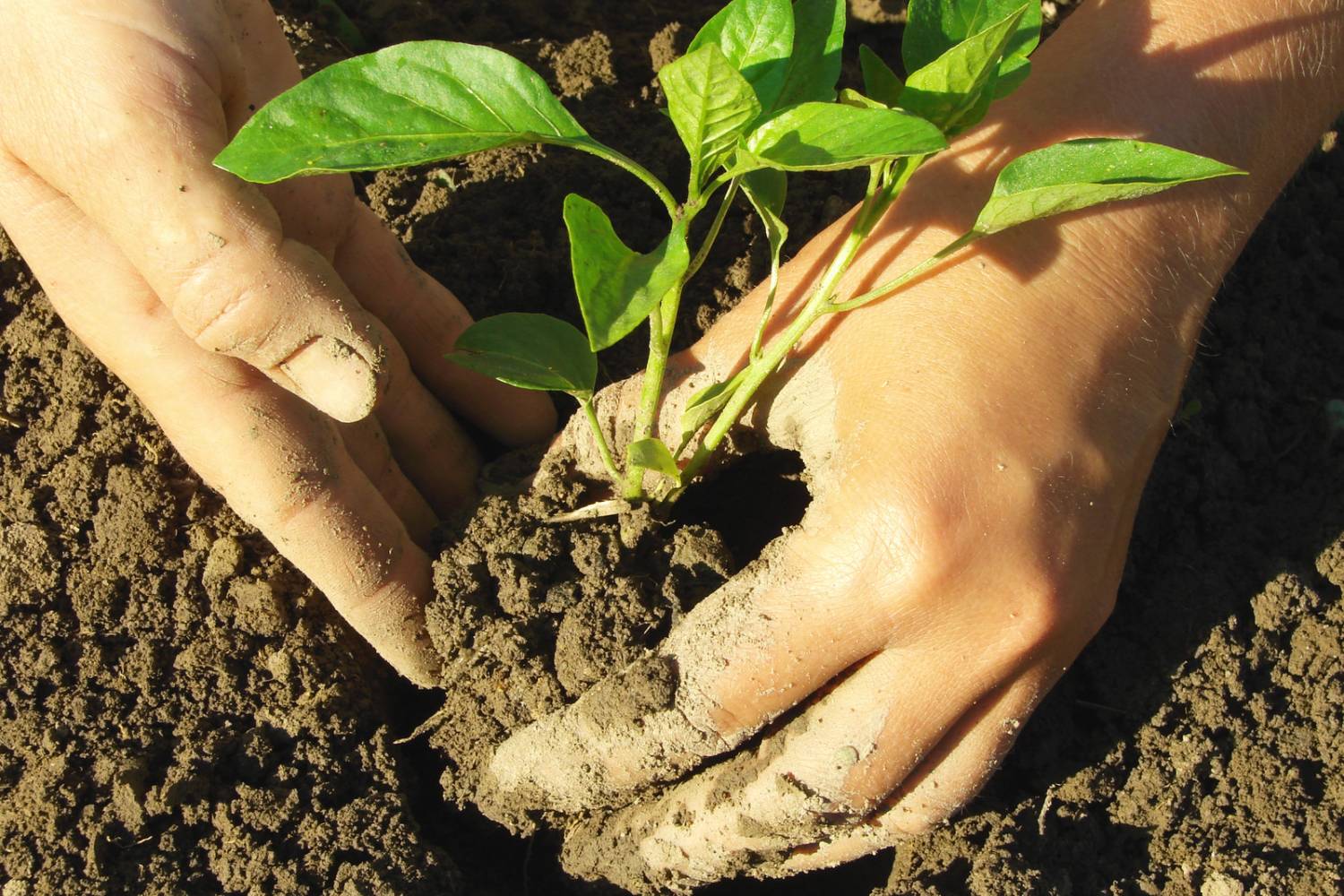Organic Vs. Synthetic Fertilizers: Which Is Best for Supporting Healthy Pepper Plants?
In the realm of supporting healthy and balanced pepper plants, the option between natural and synthetic fertilizers stands as a crucial decision with far-ranging effects. While both alternatives aim to supply crucial nutrients to sustain plant growth, the nuances of their effect on the dirt, plant wellness, and the atmosphere trigger a debate that mirrors throughout the horticulture neighborhood. Comprehending the distinctive advantages and possible challenges of each fertilizer kind is critical for pepper farmers seeking to optimize their returns while keeping a sustainable and eco-conscious method.
Benefits of Organic Plant Foods
Organic fertilizers supply a sustainable and environmentally-friendly method to beneficial pepper plants, giving important nutrients without using synthetic chemicals. These natural fertilizers are stemmed from natural resources such as garden compost, manure, bone dish, and algae, promoting soil health and wellness and biodiversity. Unlike artificial fertilizers, natural choices release nutrients slowly, making certain a steady and balanced supply for pepper plants to flourish.
One considerable advantage of organic plant foods is their capacity to enhance soil structure and water retention. By enhancing dirt health and wellness, organic plant foods advertise advantageous microbial activity, which assists in nutrient uptake by pepper plants. In addition, organic fertilizers decrease the threat of chemical run-off, securing water sources from pollution and safeguarding the atmosphere.
Additionally, organic fertilizers contribute to long-lasting soil fertility by advertising the growth of useful dirt organisms. These microorganisms aid break down organic matter, releasing nutrients in a form that is conveniently accessible to pepper plants. best fertilizers for peppers. By fostering a healthy dirt community, organic fertilizers sustain lasting pepper farming techniques that profit both plants and the environment
Disadvantages of Synthetic Plant Foods
Artificial plant foods, in comparison to their organic counterparts, posture different negative aspects when made use of to nourish pepper plants, affecting both plant health and ecological sustainability. One significant disadvantage of artificial fertilizers is their tendency to seep nutrients from the dirt swiftly.
Furthermore, the overuse of artificial plant foods can add to water contamination. Excess fertilizers not absorbed by plants can get rid of into water bodies, leading to eutrophication, where algae flowers diminish oxygen levels in the water, harming aquatic life. Additionally, artificial plant foods are generally obtained from non-renewable resources, such as nonrenewable fuel sources, adding to carbon exhausts and environmental destruction during their production.
Nutrient Absorption Contrast
When comparing artificial and organic fertilizers in terms of nutrient absorption, organic plant foods have the benefit of giving a much more balanced and slow-release source of nutrients. Organic fertilizers consist of a selection of macro and trace elements that are not just beneficial for the plants however my latest blog post likewise advertise healthy and balanced dirt microbial task, which assists in nutrient uptake.
Furthermore, organic fertilizers enhance soil structure and water retention capability, enabling pepper plants to gain access to nutrients a lot more successfully. This better dirt top quality promotes origin growth, making it possible for far better nutrient absorption. Artificial fertilizers, although originally boosting plant growth due to their high nutrient concentrations, might prevent lasting nutrient absorption by derogatory soil health and wellness in time.
Ecological Effect Considerations

On the various other hand, artificial fertilizers, although frequently even more focused and immediately readily available to plants, can have damaging impacts on the environment otherwise used correctly (best fertilizers for peppers). Their production needs high energy inputs, bring about greenhouse gas discharges and adding to environment change. Moreover, the overflow of excess synthetic plant foods can pollute water sources, bring about eutrophication and hurting marine environments.
Best Plant Food Practices for Peppers
To attain this, it is crucial to follow best fertilizer techniques customized to the details demands of pepper plants. One crucial technique is to perform a soil test prior to using any kind of plant foods.
One more crucial method is to fertilize pepper plants at the right time. Usually, peppers gain from receiving fertilizer at growing and after Learn More that once more when they begin to blossom. Over-fertilizing can result in nutrition imbalances and harm the plants, so it is vital to follow advised application prices.
Additionally, picking a balanced fertilizer with an NPK ratio over at this website that suits pepper plants' needs is basic. Ultimately, integrating synthetic and organic fertilizers deliberately can assist nurture healthy pepper plants while minimizing ecological influence.
Final Thought

Organic fertilizers supply a sustainable and environmentally-friendly approach to nourishing pepper plants, giving vital nutrients without the usage of synthetic chemicals. Unlike synthetic plant foods, natural options release nutrients gradually, ensuring a stable and well balanced supply for pepper plants to prosper.
Synthetic fertilizers, in contrast to their natural equivalents, pose different negative aspects when used to nourish pepper plants, affecting both plant wellness and ecological sustainability. When contrasting synthetic and natural plant foods in terms of nutrient absorption, organic fertilizers have the advantage of supplying an extra balanced and slow-release source of nutrients.Additionally, natural fertilizers improve dirt framework and water retention ability, allowing pepper plants to gain access to nutrients a lot more successfully.